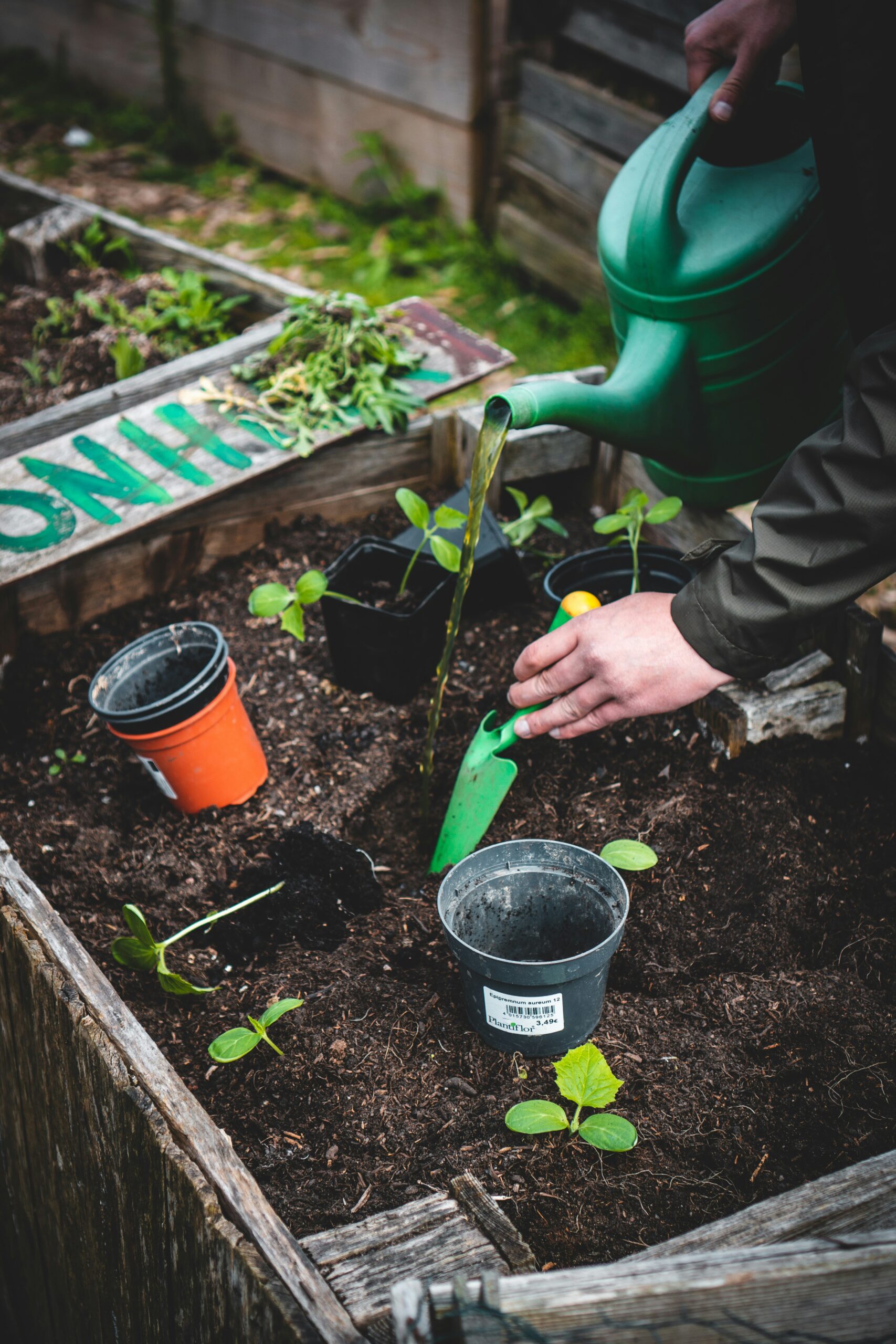Understanding the Therapeutic Benefits of Gardening
Gardening transcends mere horticulture; it serves as a profound therapeutic tool that positively influences mental and emotional health. The act of cultivating plants fosters a unique connection with nature, which has been linked to reduced stress levels and enhanced psychological well-being. Engaging with the earth allows individuals to escape the often overwhelming demands of modern life, offering a rejuvenating experience in a natural environment.
Several scientific studies have confirmed the mental health benefits associated with gardening. For instance, research has shown that individuals who spend time tending to gardens exhibit lower levels of anxiety and depression. A controlled study highlighted that participants who engaged in gardening activities reported significantly decreased symptoms of these conditions compared to those who did not. This could be attributed to the rhythmic nature of gardening tasks, which promotes mindfulness and encourages being present in the moment.
Furthermore, gardening activities promote a sense of accomplishment and purpose, contributing to improved mood. Completing tasks such as planting, weeding, or harvesting instills a feeling of success, which can be particularly beneficial for individuals experiencing feelings of inadequacy. The tangible results of one’s efforts provide a confidence boost, further enhancing overall emotional well-being.
The sensory experiences associated with gardening—the smell of soil, the sight of vibrant flowers, the sound of leaves rustling—contribute to emotional regulation. Engaging multiple senses in natural surroundings can evoke positive emotions and inspire a sense of peace. It also encourages physical activity, which is another well-known factor in reducing stress and promoting mental health.
Incorporating gardening into daily routines can thus serve as a powerful strategy for improving mental well-being and fostering a deeper connection with nature. As more individuals embrace gardening, its therapeutic benefits continue to emerge, making it an essential activity in the realm of mental health and wellness.
Creating Your Own Garden Sanctuary
Establishing a personal garden sanctuary can provide a much-needed respite from the chaos of daily life, fostering a deeper connection with nature and promoting stress reduction. To begin, selecting the right location is crucial. Choose an area that receives ample sunlight while also providing some shade for those hot afternoons. Ideally, the site should be easily accessible, allowing for frequent visits and maintenance.
Next, consider the climate and soil conditions in your area. Understanding these factors will help you select plants that thrive in your garden. Opt for native plants, as they typically require less maintenance and are more resilient to local conditions. Incorporate a variety of plant types, including perennials, annuals, and shrubs, to create visual interest throughout the seasons. Succulents and herbs can also be incorporated for those looking to add utility alongside beauty.
Designing a layout that promotes both tranquility and aesthetics is essential. Begin by creating distinct areas within your garden, such as a meditation nook with comfortable seating, where you can unwind among the greenery. Use pathways lined with sensory plants to guide visitors through your sanctuary. Plants with fragrant flowers, like lavender or jasmine, can awaken the senses, while colorful blooms provide visual stimulation.
Additionally, consider adding elements that inspire serenity, such as a small water feature or decorative stones that complement your plants. These features can create soothing sounds and provide focal points within your garden. By integrating seating areas and vibrant colors, you can enhance the overall experience, making your garden a true sanctuary that reflects your personality and meets your needs. Ultimately, cultivating this serene environment allows for a harmonious balance between nature and personal well-being.
Connecting with Nature Through Gardening Practices
Gardening serves as a profound method for individuals to deepen their bond with the natural world. Various gardening practices, including organic gardening, permaculture, and companion planting, emphasize the importance of biodiversity and sustainability, which are crucial for fostering a harmonious relationship with the environment. Organic gardening prioritizes the use of natural fertilizers and pest control methods, ultimately promoting healthier soil and ecosystems. By cultivation methods that avoid synthetic chemicals, gardeners can contribute to the overall health of the local environment, ensuring that plants thrive in balance with wildlife.
Permaculture, on the other hand, focuses on creating sustainable agricultural systems modeled after natural ecosystems. This practice encourages gardeners to observe and learn from nature, designing garden layouts and planting patterns that work with local conditions. By incorporating diverse plant species and establishing functional relationships between them, permaculture enhances biodiversity, which can lead to increased resilience against pests and diseases. Furthermore, it allows individuals to appreciate the interconnectedness of all living organisms, fostering a sense of responsibility toward environmental stewardship.
Companion planting is yet another method that emphasizes collaboration between plants, with certain plants supporting each other’s growth and productivity. For instance, planting marigolds among vegetables can deter harmful pests, while beans fix nitrogen in the soil, benefiting nearby plants. This practice not only enhances plant health but also allows gardeners to engage in a mindful approach to their gardening activities.
Mindfulness during gardening can significantly affect how individuals relate to nature. Techniques like slow gardening encourage a more deliberate pace, where each task becomes an opportunity to reflect and connect with the surroundings. As gardeners tend to their plants, they cultivate not just flora but a deeper appreciation for the environment, thereby enriching their mental and emotional well-being. Through these practices, gardening emerges as a powerful tool for enhancing one’s connection with nature and promoting a balanced lifestyle.
Gardening as a Social Activity
Gardening is not only a solitary pursuit; it can also serve as a significant social activity that fosters connections among individuals and communities. Engaging in horticultural endeavors can lead to the establishment of friendships, sharing knowledge about different plant species, and enhancing collective well-being. Community gardens are one of the key platforms for social interaction within the gardening world. These shared spaces allow individuals from diverse backgrounds to come together, collaborate, and appreciate the joys of nurturing plants, while also cultivating essential relationships. Through cooperative gardening efforts, participants often form a sense of belonging, which fosters a supportive environment.
Furthermore, gardening clubs play an essential role in promoting social interaction among gardening enthusiasts. These organizations provide members with opportunities to attend workshops, exchange tips, and participate in group planting events. As individuals gather to share their gardening experiences, they not only enhance their skills but also deepen their connections with like-minded individuals. The emotional bonds formed within these groups can alleviate the stresses of daily life, making gardening a therapeutic outlet for many.
Additionally, sharing plants and gardening insights with friends and family can encourage a culture of communal gardening. Engaging in such activities can facilitate bonding experiences, whether it involves exchanging start-up seedlings or organizing garden tours. Collaborative efforts, such as planning a garden beautification project or hosting a neighborhood gardening day, further contribute to cultivating a sense of community. In doing so, participants enjoy the benefits of stress reduction that arise from engaging with nature together. Thus, gardening seamlessly blends individual passion with collective pursuits, demonstrating its unique potential to forge meaningful connections and enhance the quality of life in a community.


